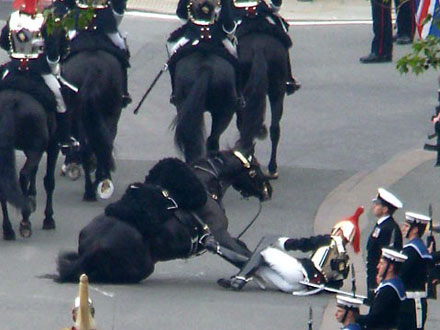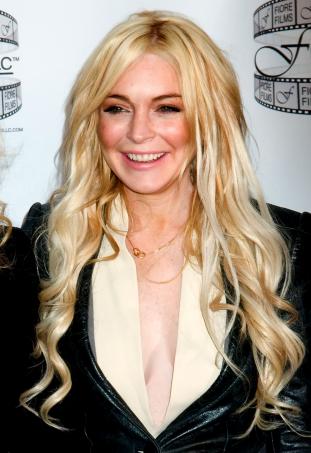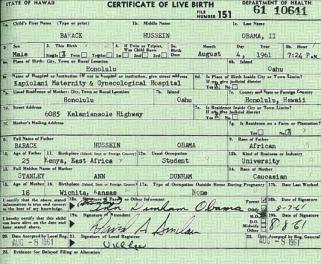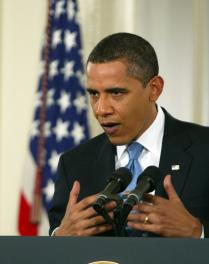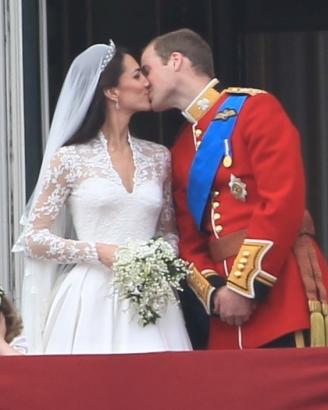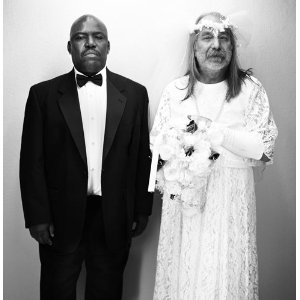
A Conversation With Bruce Hornsby
Mike Ragogna: Hey Bruce, what's going on?
Bruce Hornsby: Hey Mike, just grinding away on the road. How have you been?
MR: Pretty well since the last visit, which feels like a month ago. Bruce, you've got a new album, Bride Of The Noisemakers, which especially celebrates your last few albums and playing out on the road. What has the experience been like, playing those tours?
BH: Well, actually this double record draws from shows from '07, '08 and '09--so three different tours. Most songwriters approach the playing of their songs in what I call "the museum piece" manner. That is, they write the song, record the song, and then they play it pretty much that way for the rest of their lives. For me, I like my songs to be living beings that can grow, change, and evolve, so consequently, my approach is very different. I like to find new clothes to dress the songs up in. We're always looking to reinvent the songs, find new aspects of the songs, and discover new areas for the songs to live in. Because of that, if you hear a version of ours from '09, and you hear a version of the same song from '04, they would often be very different--the way I sing them, and the grooves could be different. We have so many different ways of playing "The Way It Is." They way we play it now is very different from the record, it's very much coming from my solo piano version of it, and I could just go on and on because it's just continuously reinventing itself. I thought it was time to document where our music is now, and what we sound like now because it's very different than something like Here Come The Noise Makers, which was put out ten years ago, our first live record.
MR: What's nice about this project is that you're visiting the later material, which catches everybody up, and it does show the living, breathing, creative process you talk about.
BH: Well, I guess you're saying that as opposed to putting out another tired record with another version of some old hits.
MR: Exactly.
BH: That would just never do. If somebody wanted us to do that--that's just so uncreative. That said, we could do that because the way we play them now is very different from the way they were originally recorded, so that would be a creative document, or something of some worth artistically. At the same time, we kind of did that on Here Come The Noise Makers in '01. There were probably four or five of our hits on that record, and once again, they sounded nothing like the originals. Or they might have been versions of the songs that I wrote that were hits for other people, like "End Of Innocence," which I wrote with Don Henley, or "Jacob's Ladder," which my brother and I wrote for Huey Lewis. We still play those songs, and they hold up just great for me. There are one or two of the hits that don't really hold up, and it's easily discovered which ones they are because they don't show up on our set lists. But most of them age well, and if they don't, we try to change them so they do fit our aesthetic of the moment. Now, you say it's recent material, but there is at least one song from our second record on here, from '88--"Defenders Of The Flag." It's not like we're trying to just make it songs from the last ten or fifteen years. There are songs from '93, "Harbor Lights" and "Talk Of The Town," and it's really from almost the whole 25 year period of time that I've been making records.
MR: That's right, and it was about 25 years ago that you won the Best New Artist Grammy, right?
BH: Well, the record was released that allowed us to win the next year. We were nominated in '87 for the '86 Best New Artist award. So, if you want to be really specific about it, it was pretty much exactly 25 years ago this month that our first record, The Way It Is, was released.
MR: That album meant a lot to me and my old musical partner Steve Mosto because we were on the road dying to hear something on the radio that we related to. Almost out of nowhere, we heard your "Every Little Kiss," and it so resonated with us that we rushed out to get the album and played it in the car at least 20 or 30 times.
BH: (laughs) Well, that's nice to hear. The songs hold up very well to me, but I have a hard time listening to the versions because I feel it's evolved to a much greater place now. That said, I'm happy to hear you say that, and happy that it got you through your long drives.
MR: You talked before about how these songs are always evolving. You've done so many different styles that it almost seems unfair to put any genres around you. You mix jazz, bluegrass, classical, rock, pop--it's all Bruce Hornsby music--and the best example is when you used that excerpt from "Barber's Sonata" to start "Gonna Be Some Changes Made." How does this come to you? How do you get inspired?
BH: If you're listening closely, there is a funny moment that is captured on the Bride Of The Noise Makers record there. The track starts with just some audience sounds--people milling around--and you hear somebody yell, "Barber!" Then, you hear me go, "Barber?" So, I lit into the fourth movement of his Sonata, one of the great piano pieces of the 20th century. The fourth movement, particularly, may be the best fugue written in the 20th century. That movement is fourteen pages long, though I only know six of them by heart. So, I go through that whole bit, and then "Gonna Be Some Changes Made" comes in, and when that groove came it, I kept playing the sonata over that. So, it just comes about very naturally and spontaneously, just like you can hear. Someone in my audience knows of that music, and they'll scream it out--and I'll always placate that person. If someone is screaming out for "Valley Road," "Every Little Kiss," or "Mandolin Rain," I might not necessarily give that person what they're looking for because it's living a little too much in the past, which I'm not against, but it just doesn't excited me. Somebody is screaming out Elliott Carter, which is another composer that I have some music from in here. Most people don't know who he is, but he's an amazing composer, and he's now one-hundred-two years old, and he wrote the piece that I play a little bit of on the record in '06, when he was ninety-seven or ninety-eight--he's absolutely amazing. So, if someone is screaming out a name like that, I know it's somebody who is really deeply involved, and I like to reward the people that are deeply involved.
MR: You're a University Of Miami alumni.
BH: That's right, I went to three schools, The University Of Richmond my first year, where I realized that real college was a bad match for me. Then, I went to Berklee College Of Music, and lasted two semesters there, and then moved on and found the right fit for me, which was The University Of Miami, where I went for my last two years. Amazingly enough, all of my credits kept transferring from school to school, so I was still able to graduate in four years, even though I went to three colleges in those four years. My last two years at University Of Miami were very important to me in my development because I had a really tough, great teacher, Vince Maggio, who I still consider to be my teacher. I'm still looking to please Vince in my music. I think what you're getting to is that three years ago I started a new music program there called, The Creative American Music Program. So, now you can go to Miami, and in the halls of academia, learn how to write, sing, and play all the traditions of American folk music, from blues, gospel, country, and bluegrass, to shape note singing, sacred heart music, and on and on. It's a songwriter's program, but it's also a player's program because, like I said, you're learning how to write, sing, and play in these styles.
MR: I don't know why it took so long, but the conservatory type of atmosphere has been broadened to include these genres, and to look at music in such a way that embraces all these other genres respectfully.
BH: It's really about learning the traditions of music that really have influenced and informed the songwriting of today--certainly rock and pop music songwriting. A lot of music is really coming from the old traditions of blues, gospel, folk and country. We've had some great guests come and play--Lamont Dozier came down to do a concert, and I had Shawn Colvin come down last year. It's just growing and growing to the point that we've got a lot of applicants, but we can only accept so many--it's a very popular program.
MR: Are you involved in the oversight of all this?
BH: Yeah, a bit from afar. I show up two or three times a year and check up with it. I've been a part of these concerts where I reinvented a Lamont Dozier tune for his concert and sang with Shawn Colvin, my old friend, who just sat in with me at the beautiful, brand new Austin City Limits venue that they have.
MR: The Moody Theater?
BH: Yeah, exactly right, way to go.
MR: One thing that I wanted to emphasize about you is that you're not only reinventing your own songs, but you embrace other people's material. For instance, on this new album you have the medley "Fortunate Son/Comfortably Numb"...
BH: ...that's right, and some people who aren't really aware of my music so much think that I'm doing a John Fogerty song into a Pink Floyd song, where, in fact, it's my song, "Fortunate Son," which is a song I wrote out of a book I read called Fortunate Son, an autobiography by a man named Lewis Puller, son of the great Marine hero Chester Puller, who was trying to follow in his father's footsteps and enlisted into Vietnam, where he got his legs blown off. Now, the reason I wrote it, musically, is because in '92, I went over to Spain, where I was part of the Legends Of Guitar festival, helping Robbie Robertson with his band. Robbie and I had written a song for his album, Storyville, and he asked me if I would help him put together this band for this gig he was going. Then, I got a fax out of the blue from Roger Waters, before we got over there, saying, "I understand you're coming over here with Robbie. Would you sing 'Comfortably Numb' with me, on my set which follows Robbie's?" I did that, and it was a transcendent moment for me, and I just loved this song. I had never heard that song because when these Pink Floyd records were big, in the '80s, I was listening to Coltrane and Bill Evans, so I had really missed it. I heard Van Morrison's version of it on Roger Waters' The Wall, and it just floored me, so I learned it the way Van sang it. When I came back from all this, it had moved me so much that I though, "I want to write a song that has this same feeling." So, I try to do this with "Fortunate Son," and gradually, we've started playing "Fortunate Son" into "Comfortable Numb," so now we call it "Fortunately Numb."
MR: (laughs) Nice.
BH: So, that's on this album almost by popular demand. Like I said, it's one of the most popular songs for our true fans.
MR: What's funny is that I'm very familiar with your song "Fortunate Son," but when I posed the question, I actually had forgotten about the Creedence version of it.
BH: That's a bad tune--bad meaning good. I love it. I love John Fogerty's writing, and that's one of the great ones, but I did have someone in an interview about a week ago say, "So, I see you're covering Fogerty there, huh?"
MR: (laughs)
BH: It's okay. I don't expect people to know all this music. To me, most of the best music happens under the mainstream radar screen, but unfortunately, hardly anyone knows that music. I feel that most of the best music I've made is not music that has been on the radio, but I feel like that about all music, whether it's The Grateful Dead, The Band, or The Allman Brothers, for instance. Those three groups were hardly ever on the radio--none of them. So, for those who typecast me...they're uninformed, which is okay.
MR: Well, we just talked about the school, and then about all the great music out there that flies under the radar. That said, what is your advice for new artists?
BH: Well, these days, it's so hard to get attention and to establish and retain a career of music of any length. It's so difficult now that my advice would be not to follow any trends. Don't try to write in the current style because by the time you figure it out, they'll be on the next style, and you'll look back at years of trend chasing where you're always behind it. I would just say be true to yourself and find your own unique voice rather than trying to figure out some notion of commerciality and how to be successful in that way.
MR: And that's how you did it?
BH: Well, it's funny because for many years, I was trying to write "hit" music. I was a songwriter for 20th Century Fox, and that leads me to a good story that kind of goes with my advice there. I was a songwriter for 20th Century Fox, and they signed me because they thought I was going to be an artist that was going to make records and have success. So, I was trying to write songs for others and trying to write commercial music, whatever that was--my notion of it, anyway. It was unfulfilling, one, and it was unsuccessful, two. I was beating my head against a wall trying to get a record contract with this music. Finally, just out of frustration with several aspects--for one, the band I had at the time playing my songs would always leave me walking away from rehearsals thinking, "Man, I thought this song was better than this, but I guess it's no good." Finally, I just said, "I'm going to make a tape with a drum machine, and me playing synth bass, and everything will come out of my head." It was the least commercial tape I had ever made, and when my two brothers heard it, they said, "Wow, this is you for the first time. It's purely you, it's completely unique, and it my be completely non-commercial, but it's really true, and it has something very special about it." Sure enough, that "least commercial tape I ever made," was the tape that got me signed by the major label. So, it's a good story that shows that people in the record companies just want to be moved. The guy who signed me at RCA, beautifully enough, was the old rhythm guitar player for The Zombies, Paul Atkinson. He signed me, and he didn't necessarily think it was commercial, he just couldn't stop listening to it because it moved him--he just couldn't take it out of his cassette player.
MR: Wow.
BH: That's a good story that shows that if you just try to find yourself, it's the best way to go.
MR: That's beautiful. For the tours between '07 and '09, the Noise Makers are basically guys that have been with you for a long time, right?
BH: Yeah, the longest tenured member of the band, J.T. Thomas, has been with me for twenty-one years. The rookie of the band, Sonny Emory, has been with the band for nine years. So, it's a good long run, and people tend to come and stay because our approach is fun for a musician--it's not your standard museum piece approach.
MR: How much improvisation is there in a live performance, from you and from the band?
BH: Oh, so much. It's always about reinvention and finding new clothes to dress the songs in.
MR: Have you played with these guys for so long that you all know where everybody is going musically for the most part?
BH: Well, I try to keep it interesting and to keep it unpredictable. I think if you would ask them, they would say, "Yes, we, a lot of the time, know where he's going to go. But quite often, he fools us, and that's what we like." I hope that's what they would say. It's a really conversational approach. One person will play a line, or a lick--like we were playing "Rainbow's Cadillac" the other night, and Doug, the guitar player, was playing a solo with a certain lick in there, and I went, "Oh, that's my next move." So, I took that and broke down the band and started singing the chorus to the tune of the lick Doug had just played. That's a perfect example of somebody just playing some musical germ of an idea, some melodic fragment, and that becoming the next section. That's the sort of thing that we do all the time, and it continues to make the music new. It really is spontaneous, and the guys are always welcoming that.
MR: When you do an older song, "The Way It Is" for example, do you guys play around with it to the point of even blending it with maybe what Tupac did to it?
BH: Well, we haven't done that because I'd feel a little idiotic trying to rap--I'd feel like a complete clown doing that. Every now and then, I've quoted one of his lyrics in the song, but the way we're playing "The Way It Is" these days is the arrangement that I play when I play solo piano concerts. I think soon we're going to start playing it in a whole new way, and that's the bluegrass version of it--the way the Skaggs & Hornsby group plays it, which is just fantastic. I'm hoping we can find a way to approximate the feeling that I get when I play with Ricky Skaggs and his band because it's a fabulous version of "The Way It Is."
MR: Nice. And I can't let you get away without telling the readers that you did get a Grammy for the "Valley Road" bluegrass version.
BH: Yeah, that's right. So, we're well versed in turning things into a bluegrass style. The way we've played "Jacob's Ladder," for many years now, is very bluegrassy. We played "Valley Road" bluegrass, which is the one that won the Grammy years ago, and pissed off all the purists that think Bill Monroe should win every year--and I don't necessarily disagree with them, but I'm very proud of the record we made, and it holds up.
MR: And you're going to be touring, of course, to support this new album?
BH: Oh, like crazy. We're touring with Bela Fleck, so it's the Bela and Bruce show, with The Flecktones and The Noise Makers in July and August around the country. Our band is touring right now, and then in June, we're doing several dates, including the Bonnaroo Festival. We're also doing, in May, the Summer Camp Festival, which is Umphrey McGee's festival. We're doing some dates after the Flecktones/Noise Makers tour at the great Wolf Trap venue with The Punch Brothers. We're playing with the group Tea Leaf Green and we'll be playing with Gregg Allman up in Connecticut, in late August and Early September. So, there's lot's of things going on. We're pretty much booked into October, and then I'm booked through next April with a solo piano tour that will accompany a "solo concerts" record that I'll be putting out then. Then, there's our play, Sick Bastard, which is moving onward and outward. We had our first production in Norfolk, it was really successful, but not great. The Book Of Mormon is great--we're not as good as them.
MR: (laughs) Will you come back and talk about that musical at some point?
BH: Sure, no problem. I guess I've been long-winded and have bored the hell out of you, but I apologize for all of my shortcomings.
MR: No, you have been great Bruce, as usual. Thanks for spending some time with me and giving me another interview. You are still one of my favorite artists and what you do in the realm of...whatever we can call your style, is an amazing thing. I just want to thank you for trying to bridge all that music and make people understand that music really is united on a basic level.
BH: Well, you know, R. Crumb, the great cartoonist, has a book you can buy called Portraits Of Jazz, Blues, And Country. So many people in the rock area basically just deal with blues and country, but they stop at the jazz because it's such a difficult instrumental pursuit. Some people may not be interested on a certain level...maybe it's too complex, esoteric, or inaccessible. But I dealt with the jazz, and increasingly, modern classical as well, so I'm interested in that aspect of playing my instrument well. So, I'm in the R. Crumb school (laughs).
MR: (laughs) We have time for one last song for the radio broadcast portion of this interview. What would you like to hear?
BH: Play "Tango King." That's a good fest of joyful noise. And don't try to clap to it because it's in 9/8. Well, you can clap to it, just beware.
MR: (laughs) I'll try my best man. Thank you again, Bruce.
BH: Thanks Mike. It was nice talking to you.
Tracks:
Disc One
1. Cyclone
2. Country Doctor
3. Funhouse
4. This Too Shall Pass
5. Circus on the Moon
6. Defenders of the Flag
7. Intro - Bobby Read / webern - Variation II (excerpt) / Carter - Catenaires (excerpt)
8. Talk of the Town / Charlie, Woody, N' You
9. What the Hell Happened
10. Fortunate Son / Comfortably Numb
11. Levitate
12. Little Sadie / White Wheeled Limousine / Just One More
Disc Two
1. Big Rock Candy Mountain / Candy Mountain Run
2. Line in the Dust
3. Shadow Hand
4. Tango King
5. Resting Place
6. Michael Raphael
7. Intro - Barber - Sonata, Movement IV (excerpt)
8. Gonna Be Some Changes Made
9. Dreamland
10. The Good Life
11. Cartoons & Candy
12. Swan Song
13. Standing on the Moon / Halcyon Days
Transcribed by Ryan Gaffney
More Bruce Hornsby News:
BRUCE HORNSBY AND THE NOISEMAKERS: BRIDE OF THE NOISEMAKERS ET FOR AMAZON.COM "DAILY DEAL" WITH NEW ALBUM MAY 2ND
The 2CD live set with bonus tracks will be available May 2nd on Amazon.com as a $3.99 "Daily Deal," offering a free download of the exclusive track "Mandolin Rain." Also, Bruce Hornsby And The Noisemakers' national tour is set through Summer with an appearance at Bonnaroo.
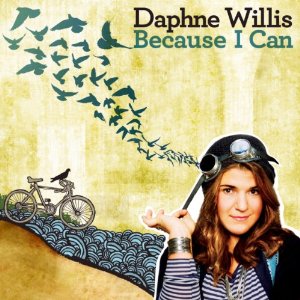
A Conversation with Daphne Willis
Mike Ragogna: Hi Daphne, you have a new album.
Daphne Willis: I do. It's called, Because I Can.
MR: Was it just the right time to do the second album?
DW: I was so ready, and this whole year has been a lot about growth for me on a musical level, and on a writing level. I really felt like there was a lot of empowerment--self-empowerment--and positive energy that went into it, and that's kind of where the title came from.
MR: Very nice, and you're coming off your debut album, What To Say.
DW: Yes.
MR: That had a couple of songs on there such as "Bluff " and "Jim Thornton," the latter being one of the more popular tracks on there too, right?
DW: It was, actually, which was great.
MR: You also get a lot of critical acclaim, and there were some comparisons to Ricky Lee Jones, and all sorts of names out there. Can you tell us about how you got signed?
DW: On a side note, it's very flattering to be even put on the same playing field as people as talented as that--I'm a huge Rickie Lee Jones fan. The actual signing is quite a story. I had this little acoustic EP that I had made, and it got licensed on American Airlines flights. The president of Vanguard Records was on a flight, and his batteries on his iPhone or iPod died, and he just happened to plug his earphones into the armrest, my song was playing, and he just decided to look me up, saw that I was unsigned, and things happened pretty quickly from there. It was really serendipitous, how the whole thing unfolded.
MR: Nice. What was the song he heard?
DW: It was "No Difference," off of the first EP that I ever did.
MR: So, now you've put out an album, you're critically acclaimed--I have your press kit here, and it lists all these different magazines and all the different accolades that were showered on you. A lot of people put out their debut albums, and even if they're on major labels, sometimes they go under the radar, but yours got a lot of attention. When that happened, did it take you by surprise, and did you feel like you suddenly had to kick things into a higher gear?
DW: You know, I think so on a certain level. It's definitely motivating, and it's encouraging to have that kind of support. People obviously got a lot of enjoyment out of the first one, and the whole reason I write is to connect with people, and people were really connecting with the music and the lyrics, so it really kept me motivated. I've just been writing like crazy, and this whole year, I've been working like crazy, and I'm really loving it.
MR: So, now you have your second album, Because I Can. What went into creating the songs and what went into the production?
DW: Well, I actually got into co-writing this year, which in Chicago, they don't do a whole lot of--I actually just moved to Nashville in December because I was getting really into co-writing, and a lot of people that I like to write with are in Nashville. The writing process, for me, switched from more of a solo thing, and something that I only did alone, to something that became more of a social thing. I think the content of the songs switched from being a little more introverted to being extroverted and really looking at lyrics that everybody can kind of relate to. I definitely wanted to write about topics that make you feel better about things. When I listen to music, I want to be inspired and motivated in a positive way, so I think a lot of the lyrical content is all about self-empowerment, getting motivated, and getting things done. Also, I touch on some relationship struggles that I went through in the last year that everybody goes through--the ups and downs of being in a relationship. So, that's kind of where the lyrical content came from, and where the writing took me on this process.
MR: You feature a couple of guest artists, like "Circumstances" features Trevor Hall.
DW: Yes, Trevor is a great friend of mine. Megan McCormick is on another track, and they are just dear friends of mine. I really wanted this whole project to be a collaborative effort. It's art, and the more people that get involved with it, the more fun it becomes, and I'm a very social person, so the more the merrier. I just wanted to involve as many people as I could.
MR: Megan being on the track, "Weatherman."
DW: Yes.
MR: Daphne, can you go into any behind the scenes stories of songs on this album?
DW: A lot of it is autobiographical, and some of it is not, since some of the songs are co-written. There is one track that I do feel is really strongly related with the overall vibe that I wanted this record to have, and that's "Do What You Want." I think it's just a fun, playful track. I did a lot of soul searching in this past year--I moved, and I went through a breakup. Although there were hard times and stuff entwined in my experiences, I feel like I took everything in a positive light, made the most of it, and really came out on top. I think "Do What You Want" is a really fun way of looking at all kinds of things that you face in any situation, and in any life, no matter who you are. That song, I think, is the closest to what I want the listener to take away from this record.
MR: Sweet. Can you just take us through how you got interested in music and how your career was shaped through the years up until you got signed?
DW: Sure. I grew up in a very musical family. Both of my parents went to The University of Texas, in Austin, so instead of watching TV, I grew up playing music and doing sing-a-longs in the living room. My mom was a vocal major, so she had me singing since I was a little youngin'. I've actually never had any training, and I'm pretty much self-taught on guitar, which I started playing in high school. Then, I went to DePaul University, in Chicago, and I did a lot of open mics, hooked up with a lot of musicians, and just basically played every day. I've always been into literature and writing, so after I got comfortable on guitar, it kind of just came naturally to try and write some things. So, as I started getting more into the open mic scene, I started writing more and more, and then I made this EP that I talked about earlier, and I got signed by Vanguard. So, it's really just been a great ride for me, to just continuously get more and more support and encouragement for something that has always been a great passion in my life, and something that I've grown up with. I'm excited to see what the rest of my life holds for this music.
MR: What does the future bring for you, touring or otherwise?
DW: I love to be on the road, I'm actually on the road right now. We left Nashville and we're going to be on the road for five weeks. We will be on the road for the whole year, pretty much. I think we've only got a couple of days off here and there, and I've got a couple of writing trips scheduled to go out to L.A. and write. Most of what we're doing is going up and down the East Coast and through the Midwest, and then, I've got a few days on the West Coast, but it's harder to get out there from where I'm at. We're trying like hell to get out there, though. Yeah, we're just basically through the Midwest, Chicago, out to the Northeast, where we'll hit New York and Boston. We're down South right now, in Florida, and we'll be coming back in June, then over to Austin. So, I'm pretty much going to be everywhere, and you can check out the dates on my website, daphnewillis.com--all the info is on there, as well as some of my other shenanigans.daphnewillis.com
MR: Speaking of Austin, you were at SXSW this year, weren't you?
DW: I was. It was my third time down there, and I always have fun when I go down there. It's getting crazy! From the first time I went down there to now, it's just more and more craziness. The "people watching" never ceases to amaze me, either. I love people watching, so it's always fun to go down there and just watch all the people.
MR: You're right, it was impossible to keep up with all the things you wanted to see down there. Actually, I was supposed to meet up with you, but it was just impossible due to the craziness that you were talking about. It was the biggest congregation of music and people who want to hear music that I've seen in a long time.
DW: Yeah, it's pretty overwhelming. If anybody reading this hasn't been, you should definitely go if you're a music lover. But you kind of have to be totally in it to win it, you know what I mean? If you go but you only kind of want to be there, then don't go. You have to really be ready to immerse yourself in that community. It's a crowd, you know? It's a constant parade of people just hustling and bustling around, trying to see as much as they can. It's inspiring, you know? It's inspiring.
MR: And thoroughly overwhelming, but in a good way. Now, you're still kind of a new artist, but I think you'll have some good insight into this. What advice do you have for new artists?
DW: Well, I think I am a new artist (laughs). I guess this is my second album, so technically, I'm not a new artist. I certainly do feel as though I'm still getting my feet wet, so to speak. I guess I would say that being on the road is an important part of making music. Being there, physically present with the people that you're impacting with your music is so important, and that's probably one of my favorite parts about it--just being on the road. I think you just have to be open to traveling, connecting with your fans, and connecting with people on a deeper level than just a handshake or something. That's probably the biggest thing for me, just connecting with people.
Tracks:
1. Shake It Off
2. One By One
3. Spit It Out
4. Sad
5. Do What You Want
6. I Will Be Waiting
7. Is Anyone There?
8. The Song Song
9. Circumstances - with Trevor Hall
10. Weatherman - with Megan Mc Cormick
11. I Want To
12. Slow Down
Transcribed by Ryan Gaffney
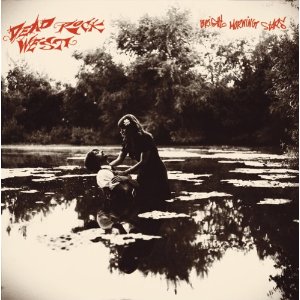
A Conversation with Dead Rock West's Cindy Wasserman
Mike Ragogna: Cindy, creatively, what was yours and Frank's approach with Bright Morning Stars' spirituals that differs from how you recorded your debut album, Honey And Salt?
Cindy Wasserman: The recording process for BMS was fast & focused. We recorded the record in 4 days. We were all in one room and we never did more than 4 takes of any song. It was such a liberating experience, in a world of Pro Tools where people do upwards of 20 or more takes of something with endless tracks to edit later, to make decisions right there in the studio. It was amazing, and personally speaking, it's my favorite way to record! That focus was one of the reasons we wanted Peter Case to produce this record.
In contrast, Honey And Salt was a much slower process. Producing it ourselves, recording to tape, and eventually flying to Nashville to mix with Richard Dodd all took much more time. It paid off but was a very different experience from Bright Morning Stars.
MR: What inspired you to record an album of spirituals?
CW: I was searching for something to light my fire again! While Frank and I were on tour in Europe I became obsessed with visiting all the churches that we would pass by. The beauty and craftsmanship of those amazing historical buildings excited and moved me. The spiritual history in those places started me delving back into the world of the old traditional gospel and church music again and pulling out those old records. Anything I could get my hands on that was "out of print" or from certain time periods became my mission. That music really hits me in the gut and makes me feel something. Just like that, my fire was re-lit again and Frank and I became obsessed with the idea of making an album of those songs. Frank suggested that we call Peter and once the idea was planted we were off and running. Luckily Peter said "yes"!
MR: Was part of the mission to capture the energy and enthusiasm contained in the original versions or reinterpret them with a new light?
CW: Great question! The answer would be both to capture the energy and
enthusiasm of the original recordings, but then to make those songs our own. Songs we loved but wanted to stamp as a Dead Rock West song. In the same way that Johnny Cash would live with those songs that he covered and take time to make them his own before he ever recorded them. That's how we approached the record.
MR: How did you choose your tracklist?
CW: Well, actually, we let Peter Case choose the tracklist. We had talked a lot together about theses songs and the tone of the record that we wanted. We knew that he had a strong idea about how the tracklist could tell a certain story, so we asked him to sequence the record.
MR: Did you come across these songs by having owned the original records, hearing them on the radio, hearing friends play them, etc.?
CW: We pulled from our own music collections and from outside sources. Myself, Frank and Peter were all involved in choosing the songs. I started with a box set called Goodbye Babylon, which are digitally re-mastered gospel songs from the original 78s, then we moved on to the Alan Lomax collection. We went to the library and borrowed music from friends. Even Exene Cervenka joined the search and began sending us CDs with her
favorite traditionals. Other musician friends also generously shared their collections with us. The three of us listened to alot of music together. We met every week for a listening session and that alone for me was pure joy. Peter eventually suggested we pick a theme for the record
and that led us to our final choices.
MR: Are there any that are especially connected from personal experience?
CW: Both Frank and I had a lot of life changes and loss during the making of the record. One of which was that we all lost a dear friend of ours, musician Duane Jarvis. He was originally supposed to play on Bright Morning Stars but we had to delay the start of the record and then he went out on tour so he couldn't join us for the sessions. He had been even more sick than many people realized. He was already ill during that European tour that Frank and I were on, and he was the real reason that we began going into all those churches. I had made it my mission to light a candle for Duane in evey church that I could find to send him any sort of healing hope. Then he passed away which was particularly tough for me
because I didn't make it back home from tour in time to say goodbye. When I sing the song "Tell the Angels" I feel very connected to him. I always sing it to him, every time, and it is very cathartic to think of him standing next to me listening, especially since he never heard the
finished record. As a result of Duane really we became inspired again, spending that time in those old mystical places lighting candles and it sparked this entire record. We owe a debt to Duane. And you know, I still light a candle for him in any church that I pass by.
MR: What was it like working with Peter Case as producer?
CW: Peter Case is a dream to work with. The organic way in which he works was perfect for us, as well as his spontaneity. Honestly we had no idea what was going to happen that first day of tracking or how we were gonna pull this off, but after the first take I knew we were onto something special. Peter was and is my dream producer. We are hoping we can lure him into doing this again with us! The way he works, his knowledge of the songs...Peter is a true musicologist. Separate from tracking the record, it was amazing to get to sit around and listen to songs with him and to hear what he would bring in each week. The whole process was such a treat for both Frank and I being both huge fans of Peter as a songwriter and musician. One of the reasons we chose "Beyond the Blues" as one of the
songs was a tip of the hat to Peter, but that song and "God Help Me" by The Jesus And Mary Chain's William Reid are both in my opinion modern day spirituals so Frank and I knew that they belonged on the record.
MR: How did your guests John Doe, Exene Cervenka, and Mark Olson come on board for guest shots and do you have any stories about working with them for the album?
Basically we called some of our favorite musicians and asked them to be on our record, and were thrilled when they all said they "yes"! To add punk rock icons Exene Cervenka and John Doe along with Peter Case on a spirituals record just seemed like the perfect idea to us. Then Mark Olson said yes and it all came together very fast. We became exited to hear what twist they would all bring to the sound of the record. All of them are so well versed in all genres of music. Walking encyclopedias of tune-age. Mark Olson is an amazing harmony singer and Frank and I owe a lot to his influence in The Jayhawks. Then of course there is the huge musical debt that Frank and I both owe to John and Exene and X. What more could we ask
for--not to mention that our drummer for the session was none other than DJ Bonebrake of X as well! When we asked them all to come down and sing, they thought that they would be singing on just one song each. But in true Peter Case style, once they were in the studio, he would say "Hey how bout you try singing on this song as well?". The end result was so much more organic. We even got some great ghost stories from Exene about the studio that we were recording in. She and John had recorded there with their band "The Knitters" and said that they'd had many a ghostly encounter! Luckily, all the spirits for our session were in good moods and quite helpful. Perhaps they were trying to get us out of there fast? Who knows, maybe the ghosts even saved us some money! The track that Mark Olson sings on,
"Wings of Angels," had been recorded with the band before he arrived. Mark was just going to come in and overdub his harmony, but in true Mark fashion, he came in, sat down at the piano to work out his harmonies and the next thing we knew he and I were re-cutting the vocals together live. Then of course, Peter pulled his "hey, how about..." with Mark so he ended up being a part of the "choir" as well on "This May Be The Last Time" and "Two Wings". Needless to say, we had a great time with everyone who came in to sing on the record.
MR: Cindy, have you played the album for your brother Bob Wasserman and if so, what was his reaction?
CW: Yes, we played the record for my brother Rob when it was in it's early stages and couldn't really tell what he thought. But my mom called me about a week later to tell me me that he loved it! He's a shy guy really and and tells her in more detail what he thinks for some reason versus telling me directly! But yes, we were relieved that he actually loved it.
MR: What's in Dead Rock West's immediate future?
CW: More touring! We are getting ready to head back overseas to Europe. We just got back from a UK tour and are on our way over again already. We also have another record in the "can" which we can't divulge any details about yet, but my brother Rob makes a guest appearance on that one. I am really exited because i have played live with Rob before, but we have never been on a record together until now. But more on that next year!
MR: So, what's your advice for new artists?
CW: As corny or cliche as it may sound, surround yourself with music and
people that inspire you. Find the folks who fire you up and challenge you to strengthen your talent, be a better human being and get rid of those who don't. Sounds harsh, but necessary. Like all relationships you need to be nurtured and pushed no matter how great you think you already are. And you only get better at your craft by doing it, not thinking about it. So,
stop the talkin' and get walkin'!
Tracks:
1. Ain't No Grave
2. God Moves On The Water
3. Two Wings
4. Beyond The Blues
5. God Help Me
6. Wings Of Angels
7. Tell The Angels
8. What Are They Doing In Heaven
9. This May Be The Last Time
10. God Don't Never Change
11. Angel Band
�
�
�
Follow Mike Ragogna on Twitter: www.twitter.com/ragz2008



 Willow Smith and Lady Gaga were digital divas who won big at last night's MTV O Music Awards -- the inaugural awards show celebrating web-savvy recording artists and digital music accomplishments.
Willow Smith and Lady Gaga were digital divas who won big at last night's MTV O Music Awards -- the inaugural awards show celebrating web-savvy recording artists and digital music accomplishments.